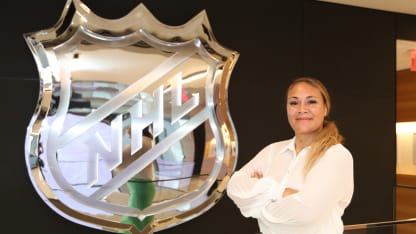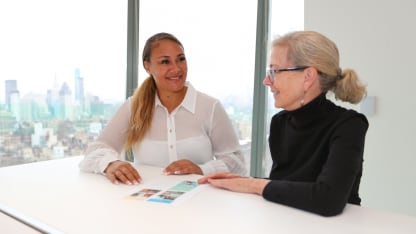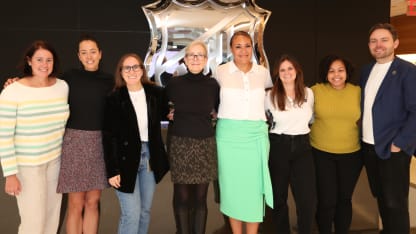NEW YORK -- A gathering of NHL employees, delegates from the United States Department of State Global Sports Mentoring Program and other organizations including the NFL and ESPN seated in the largest conference room in the League's Manhattan office, along with 15 others listening and watching over Zoom, was the ideal setting for Lailanie Burnes to be vulnerable.
Burnes is a sponsorship and hospitality manager for the Fijian Drua rugby union team based in Nadi, Fiji, and competing in the Super Rugby professional league. She's been in New York since Oct. 26 as the delegate of the NHL, an annual host organization for a collaboration between the U.S. Department of State Global Sports Mentoring Program, administered in partnership with espnW and the Center for Sport, Peace and Society at the University of Tennessee.
The journey takes her around the League through Nov. 14 during an immersive, five-week mentorship that helps empower women and girls through sports.
Ten days in, Burnes presented her action plan, the four pillars of what she called Sports for Success: identity, education, mental health and physical health. She captivated a receptive audience and left one person wishing she could command a room with the same power and grace.
Well into the delivery was a slide labeled "My Why," a photo of Burnes as a little girl, along with her aunt, Pat, and uncle, Dan, as youngsters around the same age. Pat died from a non-communicable disease before the age of 30; Dan died by suicide before his 25th birthday.
Burnes' voice cracked during this part of her presentation. One delegate later described that portion as a gut punch to the room. Collectively, it was a complete understanding of her why.
"The opportunities and the benefits that I personally saw through sport was a life-changing opportunity for me," Burnes said. "I was able to go and experience things, only dreams girls and women can dream about in my country."


